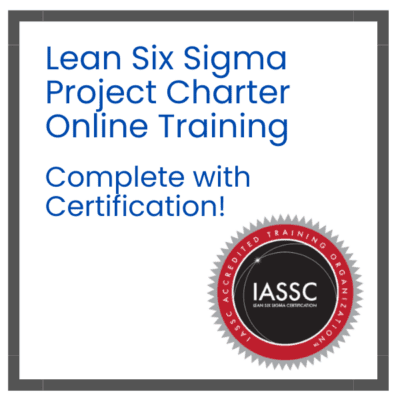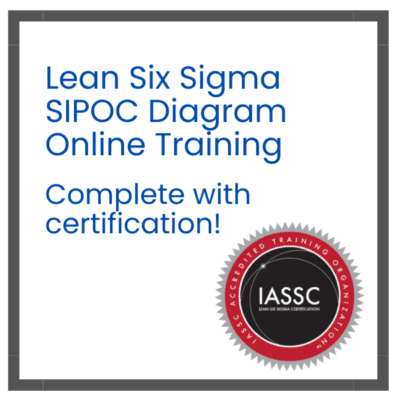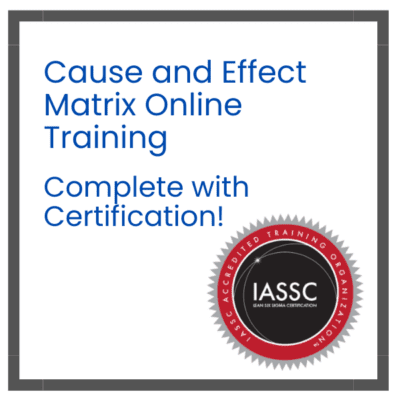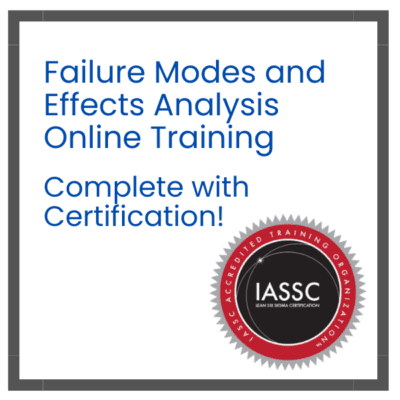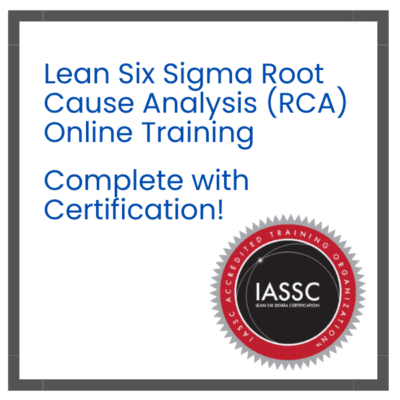Table of contents
What is a Black Belt in Six Sigma?
The meaning/definition and requirements of having a Six Sigma Black Belt certification are that you’re the most certified in the analysis, structuring, and measurement of performance problems. Black Belt roles are very different from the other six sigma positions. Black Belt professionals are expected to lead projects. Black Belts have extensive training in improving results through lean concepts and advanced statistical analysis techniques. Black belts are able to understand team dynamics and assign roles and responsibilities. Black Belts are able to understand and assign roles and responsibilities to team members.
This is a concept that many leaders don’t appreciate or ignore. Variation is the enemy and primary source of emotion-driven decision-making. The foundation of improvement is reducing variation. Therefore, Black Belts are leading the charge to reduce process variance so that results may be improved more easily. Black Belts are the ones who teach and counsel business leaders and personnel on how to reduce variation, make better choices, and ultimately improve results.
Black Belts are able to fully understand the DMAIC model according to Six Sigma principles. Black Belts can train Green Belts, and get support from Master Black Belts.
The Benefits of the Black Belt Certificate:

Six Sigma Methodologies can be a tremendous asset to any company’s future. There are many ways to cut costs, increase revenue, streamline business processes, and increase employee buy-in. All of these benefits can lead to more significant growth and profits. Because it is difficult to obtain, this certification has become the most desired. Six Sigma certification gives individuals the ability to:
- Solve quality issues
- Improve decision making
- Improve overall performance
- Improve performance by managing process practices
What a Six Sigma Black Belt Should Know
Six Sigma requires high-value staff, but not all are equally skilled or trained. This disparity can lead to a loss of time and resources. However, by definition, it is crucial to standardize what they should know as certified Six Sigma Black Belts. They are crucial for the achievement of program objectives. These are the essential things Six Sigma Black Belts should know:
Comprehensive Knowledge Of DMAIC Processes:
Six Sigma Black Belts are expected to be familiar with the five principles of Six Sigma methodology, as defined by DMAIC. These five principles are essential to the core. DMAIC stands to define the process, measure the baseline process, analyze causality factors, optimize the process, and control the flow and transition to production.
A thorough understanding of processes:
It is important to have a thorough understanding of the processes of working as a full-time employee. Six Sigma Black Belts should have extensive knowledge and hands-on experience in identifying problem areas. It is important to have technical skills and be involved in daily activities.
You should be familiar with tools and techniques
Six Sigma methodology implementation is possible by using various measurement tools that aid in decision-making. Six Sigma Black Belts must be familiar with statistical tools in order to implement six-sigma effectively. Six Sigma Black Belts will be able to grasp statistics and analysis with relative ease, even though formal training is not required.
Ability to create plans and projects:
Six Sigma Black Belts should be able to create and implement business plans to achieve defined goals. Six Sigma Black Belts will be responsible for measuring progress and communicating it in meaningful terms. Six Sigma Black Belts will be responsible for ensuring maximum gains through 6 sigma implementation.
The Knowledge Base of Customers:
Six Sigma Black Belts should know the roles of key people and be able to independently design, test, and conduct customer surveys. The Six Sigma Black Belt should be able to validate and interpret the results, identify and report on differences, and integrate the results.
Certified Six Sigma Black Belts
Six Sigma Black Belts are change agents. They are a leader. They need to have the best business acumen, strong communication skills, and customer advocacy knowledge.
Black Belt Certification Requirements
Black Belt training is for professionals who are interested in business transaction methods. Master Black Belts can also lead long-term business transformation efforts. These are the requirements for Black Belt certification.
- Get a Green Belt Certification
- Minimum of three years experience as a full-time professional
- Get work experience in a core area of knowledge
- All Six Sigma functions must be applied when at least two Six Sigma projects are completed
- Multivariate metrics can be used to improve your skills.
- Proven leader in problem-solving and able to coach or train project teams
- Six Sigma execution and other special tasks require your full attention
These are the requirements to become a Master Black Belt.
- Obtain Black Belt certification
- You must have at least five years’ experience in full-time work or be involved in at least 10 Six Sigma projects.
- In their journey of development and change, Coach Green and Black Belts
- You can work as an internal coach or as a consultant.
- Six Sigma allows you to create your own business strategies, key metrics, and other tools.
- Ensure that Six Sigma is applied consistently to all job functions within all departments
- Allotted time for statistical tasks such as the identification of additional projects/functions
- A portfolio of work that demonstrates your expertise is a good idea.

How to Become a Six Sigma Black Belt
These steps will help you earn your Black Belt certificate:
1. Complete your Six Sigma Green Belt
You must earn your Six Sigma Green Belt certification as a requirement before being eligible for a Black Belt. Many institutions that offer Six Sigma certification might offer Green Belt refresher classes that prepare candidates for the Black Belt certification training. This credential is essential before you take your Black Belt certification exam.
2. Master the Six Sigma strategies DMAIC, DMADV, and Master the Six Sigma Strategies
It is essential to be able to identify a problem, analyze data, and improve processes while also developing controls to ensure success. This will help increase efficiency and productivity in a company. These strategies will help you become more qualified to earn Six Sigma certifications. These requirements include analysis and reduced errors, manufacturing defects, and improved cycle time that results in no more than 3.0 defects per million units.
3. Complete Black Belt coursework
While these are not requirements, the Six Sigma Black Belt certification can be helpful in preparing you for the exam. The Green Belt level concepts are often used in training. This could include enterprise integration, deployment, leadership, team management, data analysis, and financial performance measures.
4. Submit your Six Sigma project requirements
Many institutions and testing centers require that you complete and submit projects using Six Sigma methods. Six Sigma projects often show real-world Six Sigma performance and productivity measures that streamline and improve manufacturing and service industries. Six Sigma projects may include applications in product quality analysis and human resources.
5. Pass your certification exam
The International Association for Six Sigma Certificate (IASSC definition), offers every level of Six Sigma certification, even the Black Belt. You can choose to take practice exams to assess your aptitude, depending on which certifying institution you are taking your exam through. You can also take the certification exam open-book by many institutes. Make sure to check with them for more information.
6. Register for Black Belt Certification
After passing your certification exam, you are a Certified Six Sigma Black Belt by definition. This credential demonstrates your expertise in Six Sigma project management and analysis techniques. It can help you prepare for mastering these skills. You can use your Black Belt certification to take advantage of mentorship opportunities, leadership development, and advanced training. This certification can help you to improve your career prospects and income potential and increase your advancement opportunities.
Are you interested in becoming a Certified Six Sigma Black Belt?
We can help! Leave us a comment down below.












